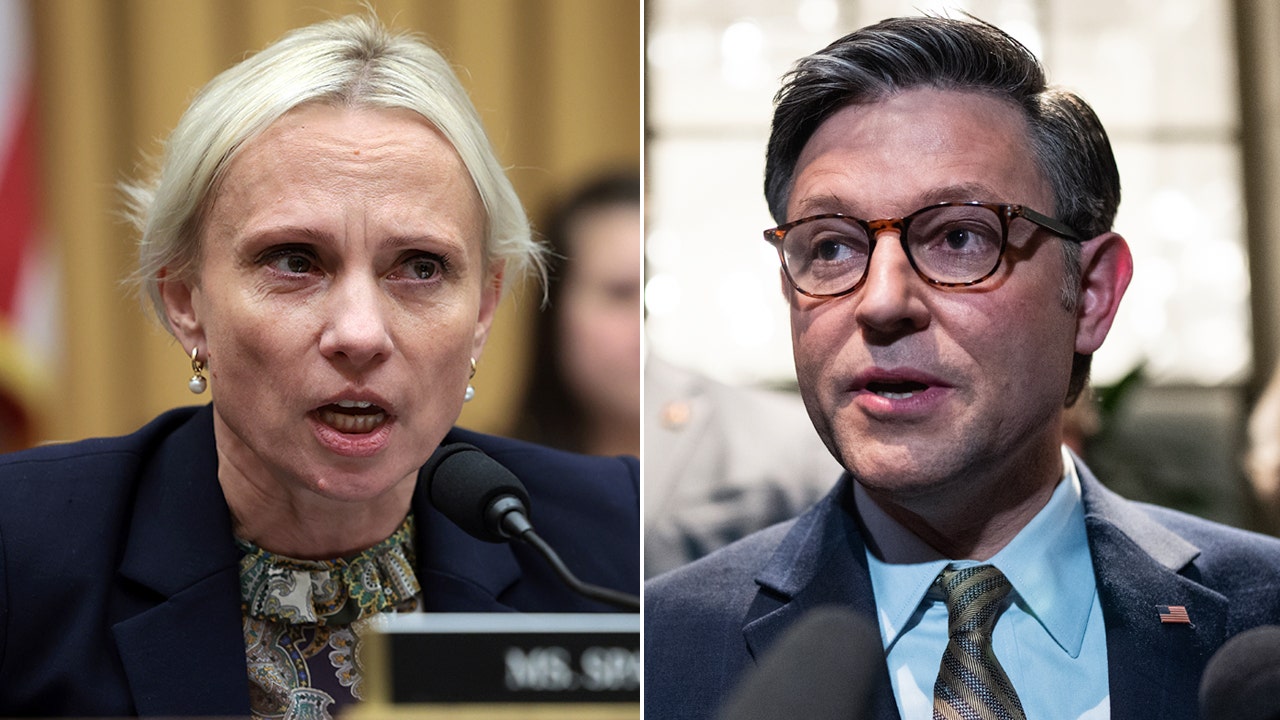Movie Reviews
‘I’ll Be Right There’ Review: Edie Falco Leads a Wry Comedy as the Wise and Weary Heart of a Family

In one of the best scenes in I’ll Be Right There, a character reveals a family story involving an improbable getaway driver. Taking in this tale is her middle-aged daughter, who knows a thing or two about driving — although her role behind the wheel is more along the lines of schlepping to and fro than making a break for it. These two strong women are played, respectively, by Jeannie Berlin and Edie Falco, actors of ineffable down-to-earth zing. When, later in the movie, the screen fills with a slo-mo shot of them running side by side down a hospital corridor, it feels like a winking, loving gift, one of the giddy dividends from this wry take on family and midlife anxieties.
Set and shot in a Northeastern hamlet (Pearl River, in New York’s Rockland County), director Brendan Walsh’s second feature (after Centigrade) is a modestly scaled affair that benefits from its unfussy sense of place and its superb casting. I’ll Be Right There navigates a territory between comforting and thorny — much as its central character, Falco’s Wanda, weary of being the voice of reason in the midst of a whole lotta drama, balances reasonable exasperation and deep wells of patience while tending to one family member in distress after another.
I’ll Be Right There
The Bottom Line Modest and well grounded.
Release date: Friday, Sept. 6
Cast: Edie Falco, Jeannie Berlin, Kayli Carter, Charlie Tahan, Michael Beach, Sepideh Moafi, Michael Rapaport, Bradley Whitford
Director: Brendan Walsh
Screenwriter: Jim Beggarly
1 hour 38 minutes
Wanda is the divorced mother of two sort-of grown-up kids. Daughter Sarah (Kayli Carter) is eight months pregnant and has her heart set on a church wedding, before her due date, to Eugene (Jack Mulhern), an even-keeled fellow as easygoing as she is given to hysteria. Wanda’s floundering son, Mark (Charlie Tahan of Ozark, who will reunite with Carter in the Bob Dylan biopic A Complete Unknown), has overcome problems with addiction but maintains a slippery relationship with the truth, to the chagrin of his therapist (Geoffrey Owens).
Wanda’s ex-husband, Henry (Bradley Whitford), has his hands full with a new brood of kids and is a bit of a whining kid himself. Her mild-mannered boyfriend, Marshall, played with unexpected restraint by Michael Rapaport, is in the quiet grip of some sort of existential angst. He blurts out a non sequitur marriage proposal and then, in the next breath, rescinds it, embarrassed that he’s overstepped. Even if she weren’t cheating on Marshall, having recently discovered her Sapphic side, marrying him would be the last thing on Wanda’s list of goals. If she had one.
Her relationship with young college professor Sophie (Sepideh Moafi, of Black Bird and The Killing of Two Lovers) is a secret, but not one that she’s guarding too closely. Henry’s and Sarah’s responses to the revelation are sharply written and played, but more to the point is Wanda’s dawning realization that the romance isn’t all that. Sophie, who excels at compartmentalizing, tends to show up on Wanda’s front porch at odd hours, sometimes drunk and always horny.
And then there’s Wanda’s new friendship with Albert (Michael Beach), a high school classmate who recently returned to town. Though his being a firefighter and a devoted divorced dad might be a too-easy shorthand for earnest, solid goodness, there’s also something fresh and winning in the way he’s both flustered and impressed when Wanda mentions her bisexual dating status.
Working from a screenplay by Jim Beggarly (A Country Called Home, A Year and Change), Walsh struggles in the early going to strike the desired tone between dark comedy and something more anodyne — even with Falco and Berlin at the center of the opening sequence, which revolves around 68-year-old Grace (Berlin) receiving a cancer diagnosis that’s better than the one she expected. The gallows humor feels strained, and the insistent chirpiness of James Righton’s score is too much. Things settle down and find their footing with Tahan’s first scene, which provides a jolt of more complicated humor.
Responding to various SOS messages from Grace, Sarah and Mark at all hours, Wanda is always on call; the movie’s title expresses an emotional refrain. At the helm of her blue station wagon, she spends good portions of her days crisscrossing town to provide comfort and rescue. It’s at night that she does her work as a bookkeeper. The scenes of her doing the books at bars and restaurants in the small downtown are alive with something workaday yet unexpected, captured with vibrancy in Aaron Medick’s camerawork, while Righton’s score takes on an angsty and effective undertow. (Elsewhere it hits pitch-perfect comic notes.) There’s family quality time, too, captured in scenes at a local ice cream place, where three generations of women talk about, or around, what’s going on. Or what went on decades earlier.
It would be an exaggeration to call this feature an actors’ showcase, but it’s certainly an actors’ movie, which might explain the involvement as exec producers of Falco and Jesse Eisenberg (who appeared in Free Samples, Beggarly’s first produced screenplay). In addition to Wanda’s interactions with other characters — complete with eye-rolls and precision application of the skeptical raised eyebrow — Falco finds the subtle edge in a couple of breakthrough breakdowns, with Rapaport and Berlin each providing the perfect counterbalance. Falco and Whitford are spot-on in the choice scenes they share, effortlessly slipping into the well-worn grooves and rhythms of their characters’ animosity.
Carter and Tahan lend nuance to their more broadly written roles, while Berlin keeps you hooked with everything about her — not least the syncopated rhythms of her line readings, especially when the lines have built-in snap. “It’s not gambling,” the casino habitué tells her daughter, “if you know how to play.”
Falco, involving as ever, might not be engaged in a wild gamble here, but there’s a certain risk in the ways that she and the movie circle a neat conclusion. And there’s wisdom in the way they wind up somewhere far messier, sweeter and more satisfying.

Movie Reviews
Review: The best film of 2024 hits Bay Area theaters this week

Some films only need to be seen once to fully grasp the intentions and purpose of the filmmaker. “Nickel Boys,” RaMell Ross’ evocative adaptation of Colson Whitehead’s Pulitzer Prize-winning novel, is not one of those films.
The film, which opens Jan. 3 in Bay Area theaters, is like a prism, constantly revealing a new and different angle as it proceeds.
Ross’ novel approach tells Whitehead’s tale, based on true events, about two young Black men stuck in a wretched juvenile Florida reformatory school, the site of relentless and sometimes fatal abuse. What makes it a unique film about being Black in America is that it’s told from both teens’ perspective, literally changing its POV as the story evolves. It is revelatory to behold. It’s also initially off-putting and takes some getting used to since it goes against the grain of conventional narratives. The result is something far more soulful, truthful, tragic and joyous than what we would “see” in a linear fashion.
The daring approach (cinematographer Jomo Fray deserves a lot of credit for helping pull this off) creates a stirring string of inter-connected impressionistic coming-of-age sequences, all of which get edited with grace and fluidity by Nicholas Monsour. Each scene grants access to the mostly Jim Crow-era world seen from the eyes of Ellwood (Ethan Herisse) and Turner (Brandon Wilson) as each bear witness to brutal injustices and multi-storied racism.
One of the most indelible scenes features Ellwood staring at a truck with a KKK-ready cross in its bed. But Ross balances those with moments of sheer beauty – the look of unconditional love from a grandmother (Aunjanue Ellis-Taylor), an unexpected friendship that buds, blossoms and then goes on to haunt one of boys forever.
Ross’ film, like Whitehead’s novel, refuses to serve as a one-note cinematic treatise on Black trauma. One of the key narrative threads centers on the adult Ellwood (Daveed Diggs) who is forced to confront a wraith-like fallout from the past when numerous boys’ bodies get dug up the Nickel Academy grounds. (The real-life Floridan Dozier School for Boys served as the basis for the film and novel.)
Ross spares no anguish when depicting the young victims of the academy, but he also refuses to define them solely by their trauma. To that point, Ross also refrains from graphically depicting the horrible acts committed, so they don’t overwhelm his story.
He and production designer Nora Mendis further heighten what it’s like for Ellwood and Turner growing up during that volatile period through various visual cues (a collection of memorabilia magnetized to grandma Hattie’s refrigerator is rife with more defining detail and context). Ross uses visual metaphors – including alligators – to that purpose, adding another layer of symbolism you might want to explore in more viewings.
Ross’ storytelling approach does present a formidable challenge to actors: All in the cast must be willing to use the most of their limited in-front-of-the-camera screen time since we don’t see directly into Ellwood’s face until the perspective switches to Turner. Both Wilson and Herisse make the reveal of their faces seem like a natural conclusion, while Diggs conveys through body language the turmoil of what his character is undergoing. But it is Ellis-Taylor’s big-hearted performance as a grandmother with enormous reservoirs of love and compassion that deepens the soul of this beautiful groundbreaking work of art, an achievement that we’ll be talking about and referencing in years to come.
Contact Randy Myers at soitsrandy@gmail.com
‘NICKEL BOYS’
4 stars out of 4
Rated: PG-13 (violence)
Cast: Ethan Herisse, Brandon Wilson, Daveed Diggs, Aunjanue Ellis-Taylor
Director: RaMell Ross
Running time: 2 hours, 20 minutes
When & where: Opens Jan. 3 in Bay Area theaters
Originally Published:
Movie Reviews
Movie Review – Mufasa: The Lion King
Like many critics, I despised the 2019 CGI version of “The Lion King.” The new animation was ugly and the rehashing of the story from the 1994 classic without many changes made the whole thing seem unnecessary. But unlike many critics, I’m not ready to throw prequel “Mufasa: The Lion King” away just because of the sins of its predecessor. I’m not saying that it’s not still inextricably tied to the 2019 film, especially with its still-terrible CGI animation, but the story and characters can do some roaming on their own that makes for a breath of fresh air.
The film opens with Simba (Donald Glover) and Nala (Beyoncé Knowles-Carter) going away on some adult lion business and leaving their cub Kiara (Blue Ivy Carter) in the care of comic relief meerkat Timon (Billy Eichner) and warthog Pumbaa (Seth Rogen). A storm is approaching, Kiara is scared, and Timon and Pumbaa’s danger-fraught stories aren’t helping. Wizened mandril Rafiki (John Kani), an old friend of the family, steps in and tells Kiara a story about her grandfather Mufasa’s bravery so that she won’t just be soothed, she’ll be inspired to be brave herself going forward. The framing device isn’t a bad idea in and of itself, and Kiara is important to the future of this world with the Circle of Life and all that, but Timon and Pumbaa are nothing but grating here. Their tired, lowbrow schtick gets the movie off to such a bad start and causes so many unwelcome interruptions that frankly I can understand why some people think they’re a deal-breaker for the entire film.
Fortunately, things pick up once the movie commits to the story of Mufasa (voiced as a cub by Braelyn and Brielle Rankins). A flood took him away from his parents (Anika Noni Rose and Keith David – because of course it took two of the greatest voices in the world to sire a character that would eventually have the all-time great voice of James Earl Jones) and he was rescued by Taka (Theo Somolu), an unblemished prince from a faraway pride who is quick to consider him a brother. King Obasi (Lennie James) allows Mufasa to live with the pride on the condition that he mostly live with the lionesses, led by Queen Eshe (Thandiwe Newton). This is supposed to be humiliation, but while Taka grows up learning rotten lessons from his jerk father, Mufasa picks up useful practical skills. He’s even able to protect Taka and Eshe from the son of evil lion Kiros (Mads Mikkelsen), who sets his sights on wiping out the entire pride, sending Taka and Mufasa fleeing toward a sanctuary called Milele.
Along the way, Mufasa (now Aaron Pierre) and Taka (now Kelvin Harrison Jr.) make friends with Rafiki, as well as fellow lion Sarabi (Tiffany Boone) and her guide-bird Zazu (Preston Nyman), and they form an unlikely pack. Both Taka and Mufasa develop feelings for Sarabi, but Mufasa is bound by his honor to defer to Taka. Sarabi falls for Mufasa anyway, and Taka considers it a betrayal. The team has to not only worry about making it to Milele with Kiros in pursuit, but dissention between two lions that were, for all intents and purposes, brothers.
Yes, it’s easy to see where the story is going when you consider that certain characters have to end up in certain places by the time “The Lion King” rolls around. Yes, the animation still isn’t great, but it’s only obnoxiously bad in close-ups, which admittedly the film does far too often. And yes, the songs by Lin-Manuel Miranda (which sometimes invoke “Moana” more than the actual “Moana” sequel from a few weeks back) aren’t as memorable as the Elton John songs from 1994. But sorry, no, none of that ruins the movie for me. I still found myself invested in these characters, Timon and Pumbaa aside. I see enough effort and passion here that I’m willing to give “Mufasa: The Lion King” a very shaky recommendation.
Grade: B-
“Mufasa: The Lion King” is rated PG for action/violence, peril and some thematic elements. Its running time is 118 minutes.
Contact Bob Garver at rrg251@nyu.edu.
Movie Reviews
'Babygirl' Review: Nicole Kidman Comes to a Place of Magic in Halina Reijn's Smart Erotic Dramedy

Babygirl is What We Need in a Vanilla Cinematic Landscape
In recent years, there has been a lack of sexuality in film. I’m not talking about romantic sex, but straight-up fucking. Frankly, movies have been a bit conservative. With film snobs or Gen-Z viewers on Twitter going, “Why do movies need sex scenes?” and the industry adhering to that, cinema has been feeling so radically vanilla. Sex is so much more than shock value in movies. Sex is meant to emphasize connection and pleasure, and why it’s so important to human stimulation, but nobody wants to have that conversation. Babygirl is a perfect personification of that and feels so radical and fresh to witness a movie that allows its lead to experience this pleasure, affair be damned, and not villainize her for it. Also, it’s a ton of fucking fun, dude!
Kidman and Co. Dominate the Screen
Nicole fucking Kidman, man. She’s one of the hardest-working actresses in the industry today, and her performance is something that you’d never even expect from an actress of her caliber. It’s not even the raw sexual fervor because we’ve seen it with Eyes Wide Shut. However, portraying a character with such a high level of class and authority, and swiftly exhibiting a submissive sexual position, such as getting on all fours and licking milk off a bowl or standing in the corner like a school child being punished, without portraying it as humiliation, is a delicate balance that, frankly, no other actress can achieve. The Aussie icon you see in every AMC ad (except for this one, for some reason!) stars in about five or six projects a year and keeps proving her talent. There’s a reason why she’s being touted for Best Actress during the current award season; this is her one-woman show.
The film’s excellent supporting cast also bolsters Kidman’s performance. Harris Dickinson truly understands the assignment as Samuel, the equivalent of a manic pixie fuckboi who can read people easily, but one you can’t seem to figure out yourself. He has this type of seductive magnetism that allows Romy to figure out her freak shit without ever teetering their dynamic toward romance because that’s truly not what this movie is.
-
/cdn.vox-cdn.com/uploads/chorus_asset/file/24924653/236780_Google_AntiTrust_Trial_Custom_Art_CVirginia__0003_1.png)
/cdn.vox-cdn.com/uploads/chorus_asset/file/24924653/236780_Google_AntiTrust_Trial_Custom_Art_CVirginia__0003_1.png) Technology1 week ago
Technology1 week agoGoogle’s counteroffer to the government trying to break it up is unbundling Android apps
-
/cdn.vox-cdn.com/uploads/chorus_asset/file/25672934/Metaphor_Key_Art_Horizontal.png)
/cdn.vox-cdn.com/uploads/chorus_asset/file/25672934/Metaphor_Key_Art_Horizontal.png) Technology6 days ago
Technology6 days agoThere’s a reason Metaphor: ReFantanzio’s battle music sounds as cool as it does
-

 News1 week ago
News1 week agoFrance’s new premier selects Eric Lombard as finance minister
-

 Business5 days ago
Business5 days agoOn a quest for global domination, Chinese EV makers are upending Thailand's auto industry
-

 Health2 days ago
Health2 days agoNew Year life lessons from country star: 'Never forget where you came from'
-
/cdn.vox-cdn.com/uploads/chorus_asset/file/24982514/Quest_3_dock.jpg)
/cdn.vox-cdn.com/uploads/chorus_asset/file/24982514/Quest_3_dock.jpg) Technology2 days ago
Technology2 days agoMeta’s ‘software update issue’ has been breaking Quest headsets for weeks
-

 World6 days ago
World6 days agoPassenger plane crashes in Kazakhstan: Emergencies ministry
-

 World1 week ago
World1 week agoControversy plagued UN agency that employed Oct. 7 terrorists facing new problems as country redirects funding













